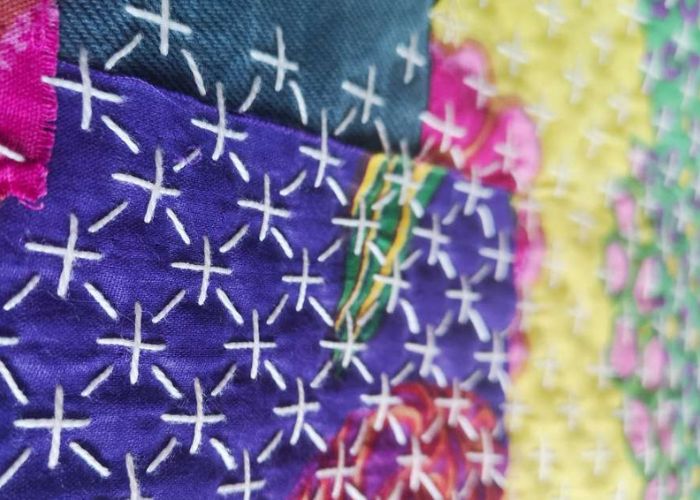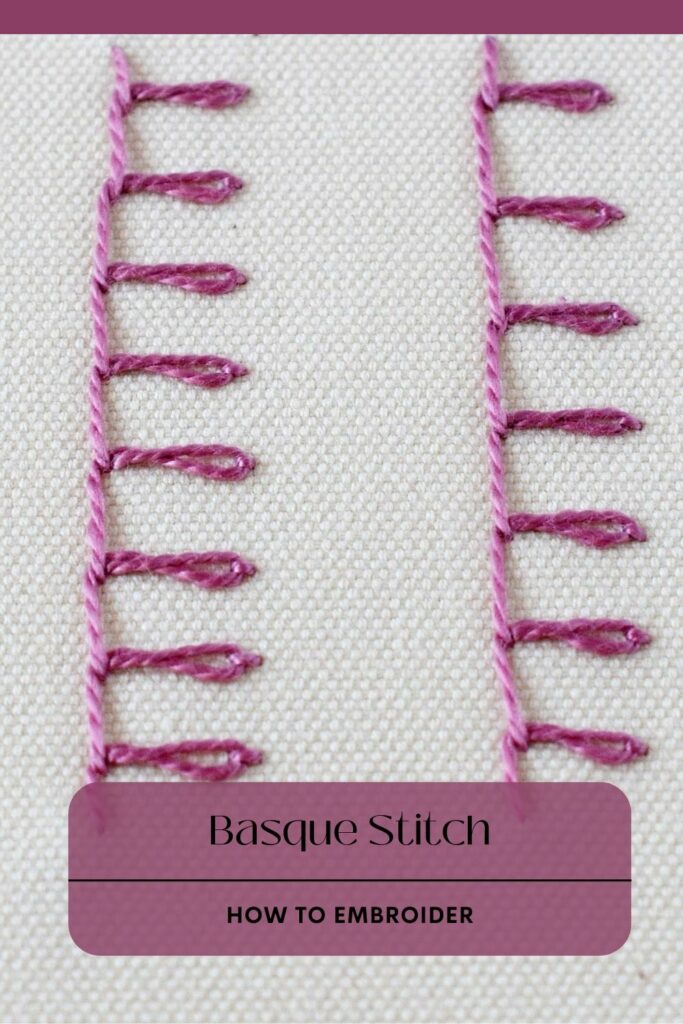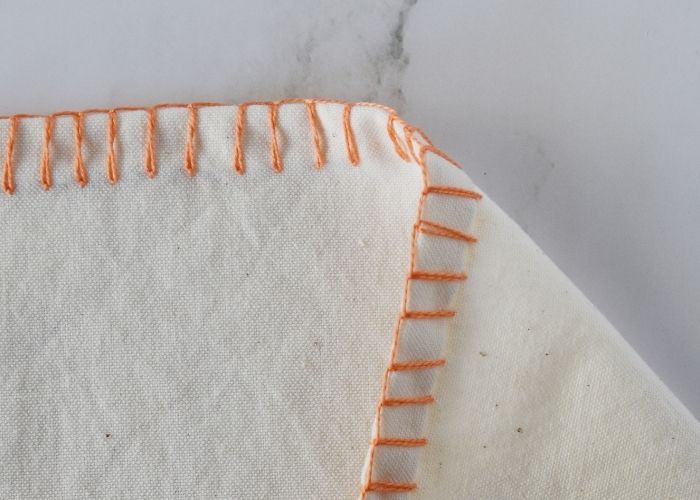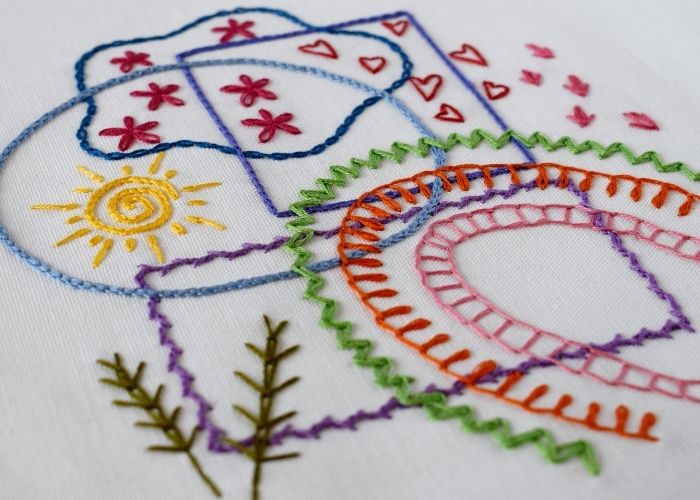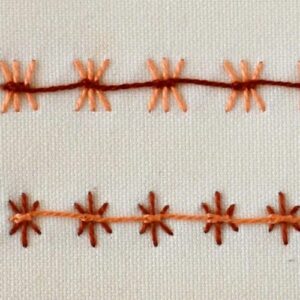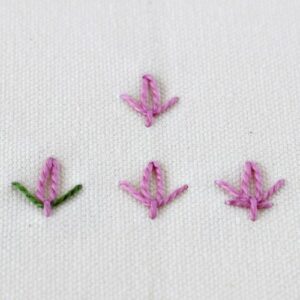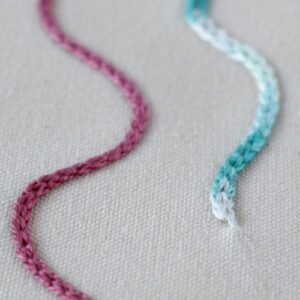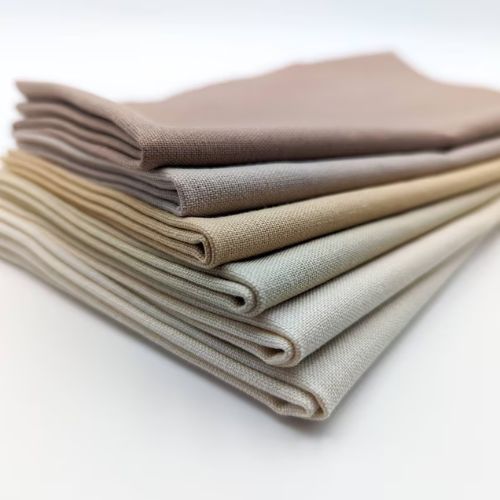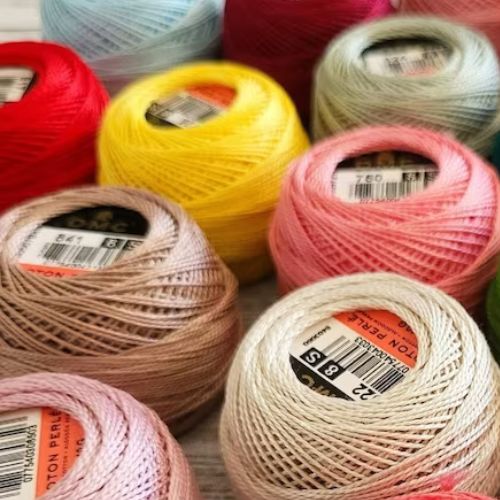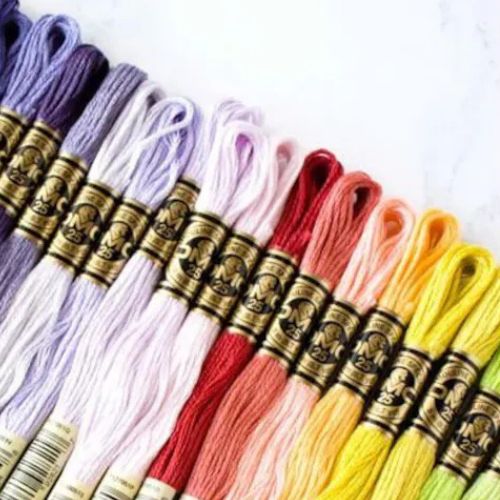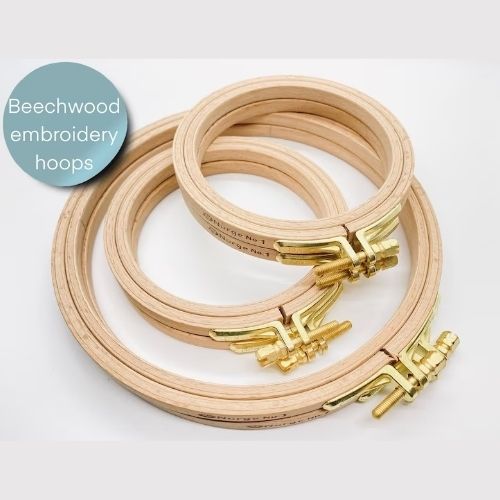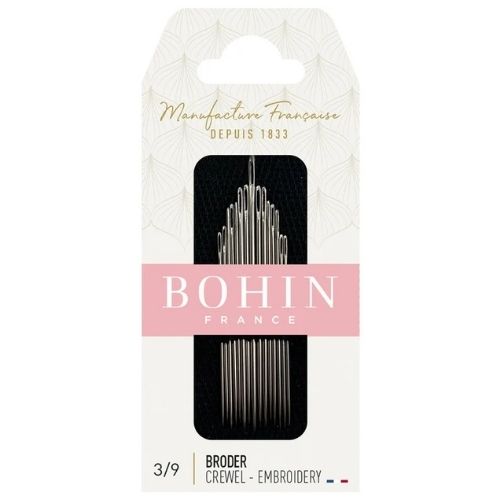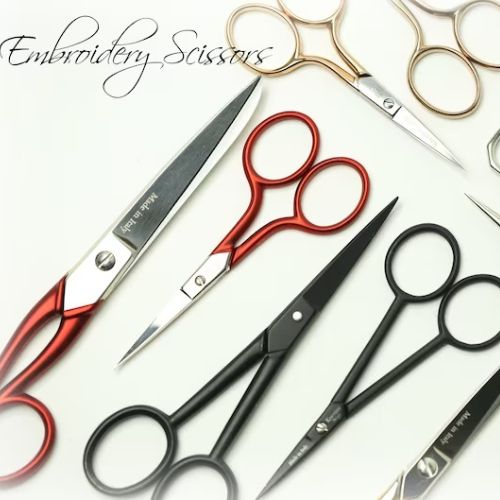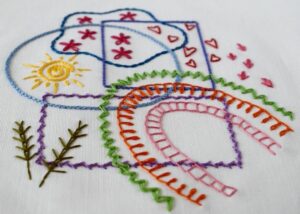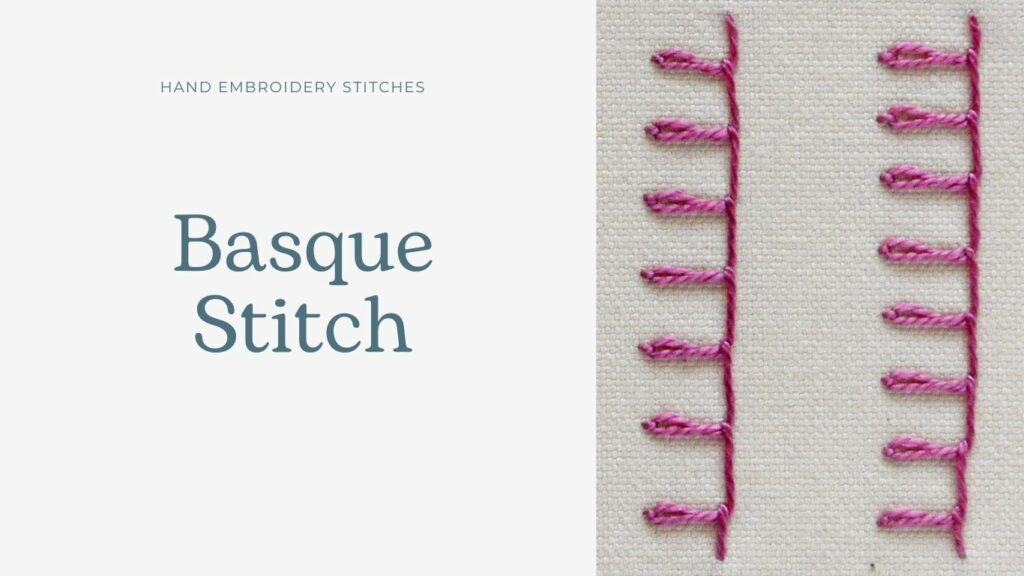
Basque Stitch Embroidery
Basque Stitch hand embroidery is a decorative technique from the Chain Stitch family. Vertical chain stitches twisted in an S shape are held together by a horizontal line of straight stitches. This twisted structure of the stitch requires thread that holds the shape well. To embroider this sampler, I used DMC pearl cotton. You can also opt for DMC Cordonnet Spécial (a thread for crochet) or even metallic threads that will highlight the structure of the stitch.
Other names of the stitch
As the name of the stitch suggests, this technique comes from Basque country, located in the western Pyrenees that span the Franco-Spanish border. Basque Stitch is also known as a Twisted Border Daisy Stitch.
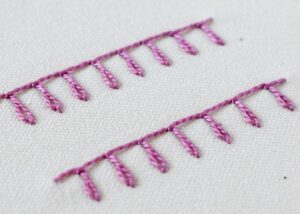
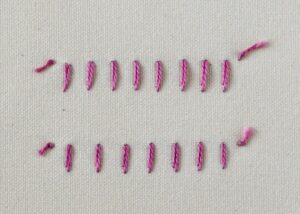
Applications of Basque Stitch
Basque Stitch is a beautiful option for decorative borders, outlines, and embellishments. It can also be used in botanical embroidery or Crazy Quilting.
This stitch takes curves and rounded shapes very well, so you can position it in circles or embroider wavy lines to decorate garments.
More decorative variations of the Chain Stitch
Learn how to embroider Basque Stitch
Follow the step-by-step tutorial with detailed photos below, and you will learn the Basque Stitch quickly. If you are a visual learner, watch a video lesson in the tutorial or on the Practical Embroidery YouTube channel to learn this hand embroidery stitch faster.
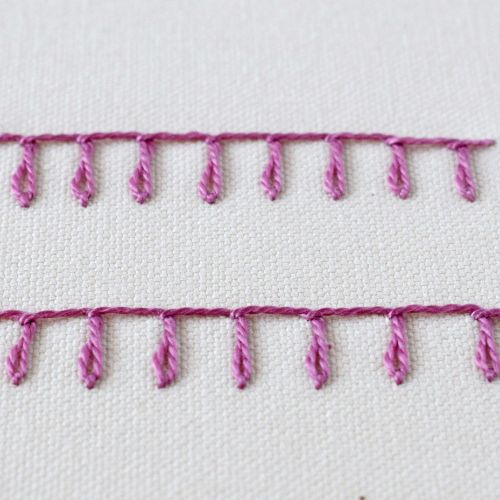
How to embroider Basque Stitch
Step-by-step hand embroidery tutorial
Instructions
1. Mark the fabric to position your stitches. Bring the needle up on the top left corner. One stitch to the right, take the needle down through the fabric, and push the point of the needle back to the surface on the lower mark.
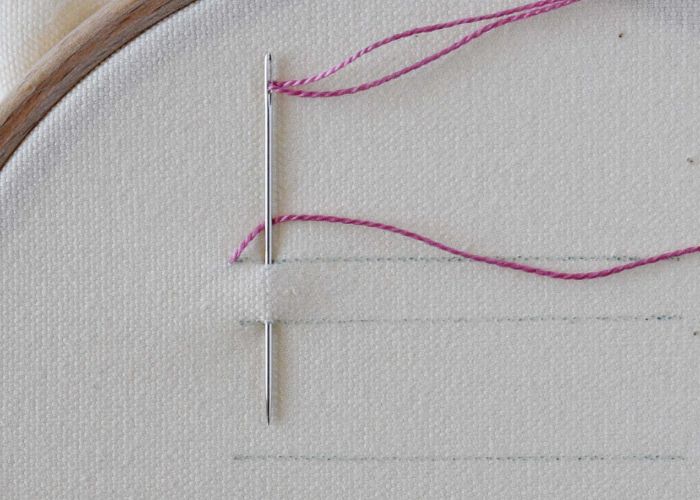
2. Keep the needle in the fabric and twist the working thread around the needle, forming a reverse S shape.
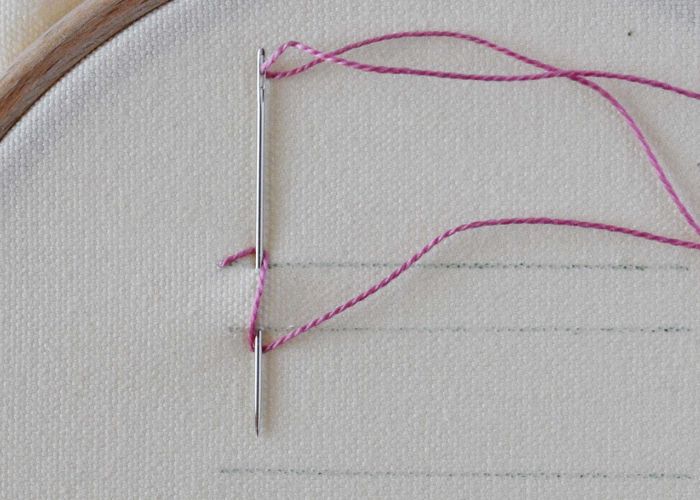
3. Pull the needle through the twisted loop and tighten it (not too much).
4. Make a small anchoring stitch at the end of the loop.
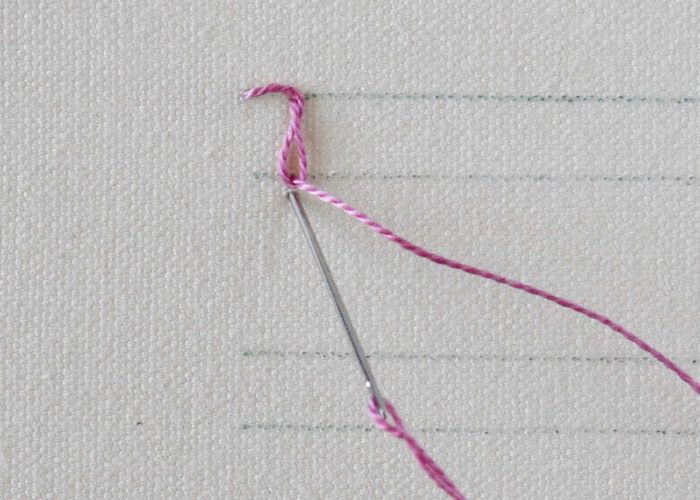
5. Bring the needle up at the base of the first stitch.
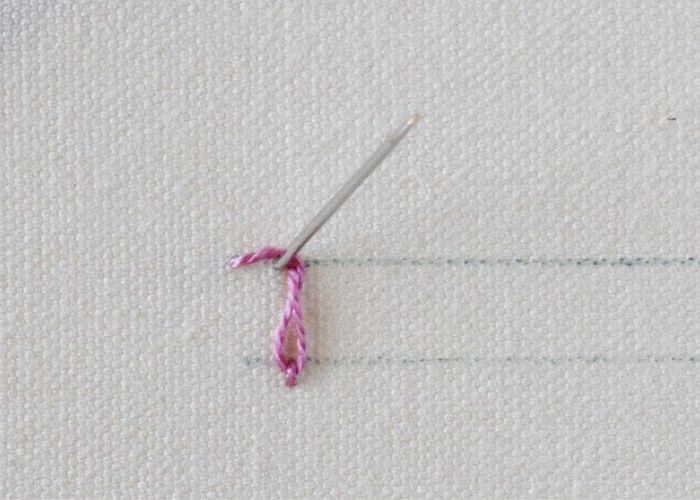
6. Repeat the steps to create one more twisted chain stitch.
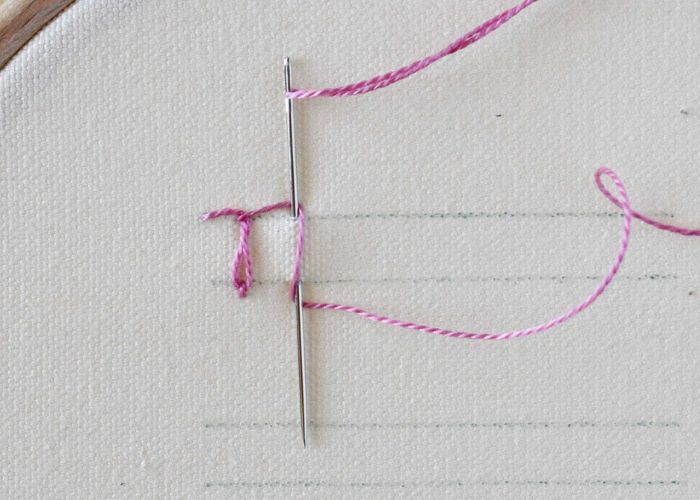
7. Add as many stitches as you need to fill the marked area.
Video tutorial
Tools and materials I used for this sampler
Disclaimer. To cover the cost of creating free embroidery patterns and video tutorials for this blog, I do sometimes link to products. Please assume these links are affiliate links. If you choose to buy through my links then THANK YOU – it will make it possible for me to keep doing this.
What’s next?
If you’re in the mood to explore more hand embroidery stitches, check out the Stitches and Techniques page for the list of other fantastic stitches available on my blog. From timeless classics to modern twists, a whole world of stitches is waiting for you to explore and master. So, grab your hoop and needle, and let’s stitch our way to creative bliss!
Don’t miss a thing!
Follow me on YouTube, Instagram, Facebook, and Pinterest. Or why not subscribe to Practical Embroidery newsletter and get embroidery tips straight to your inbox every few weeks?
Projects to practice Basque Stitch
Need More Guidance?
The top 10 hand embroidery stitches to learn is a free online course created for beginners.
